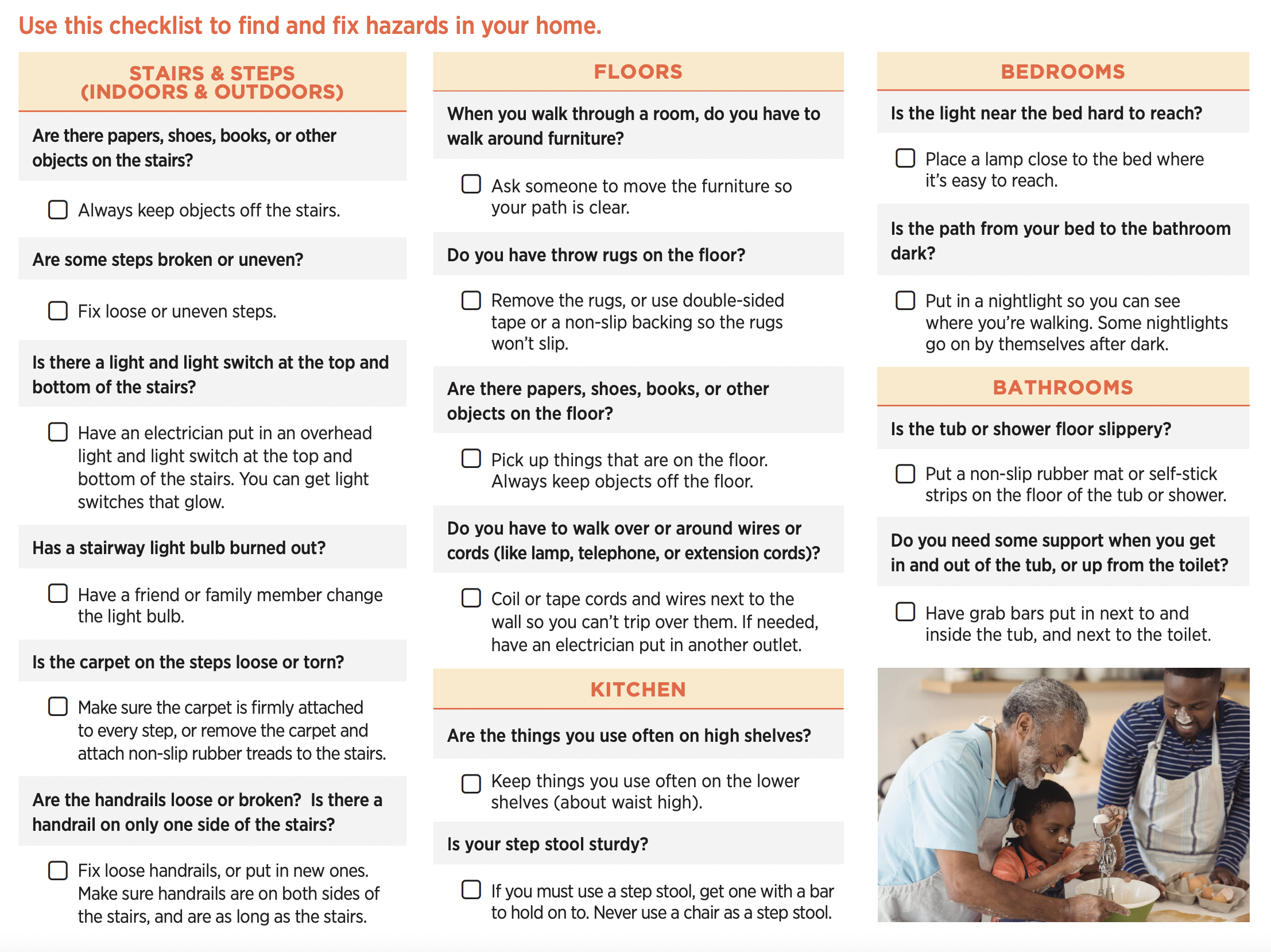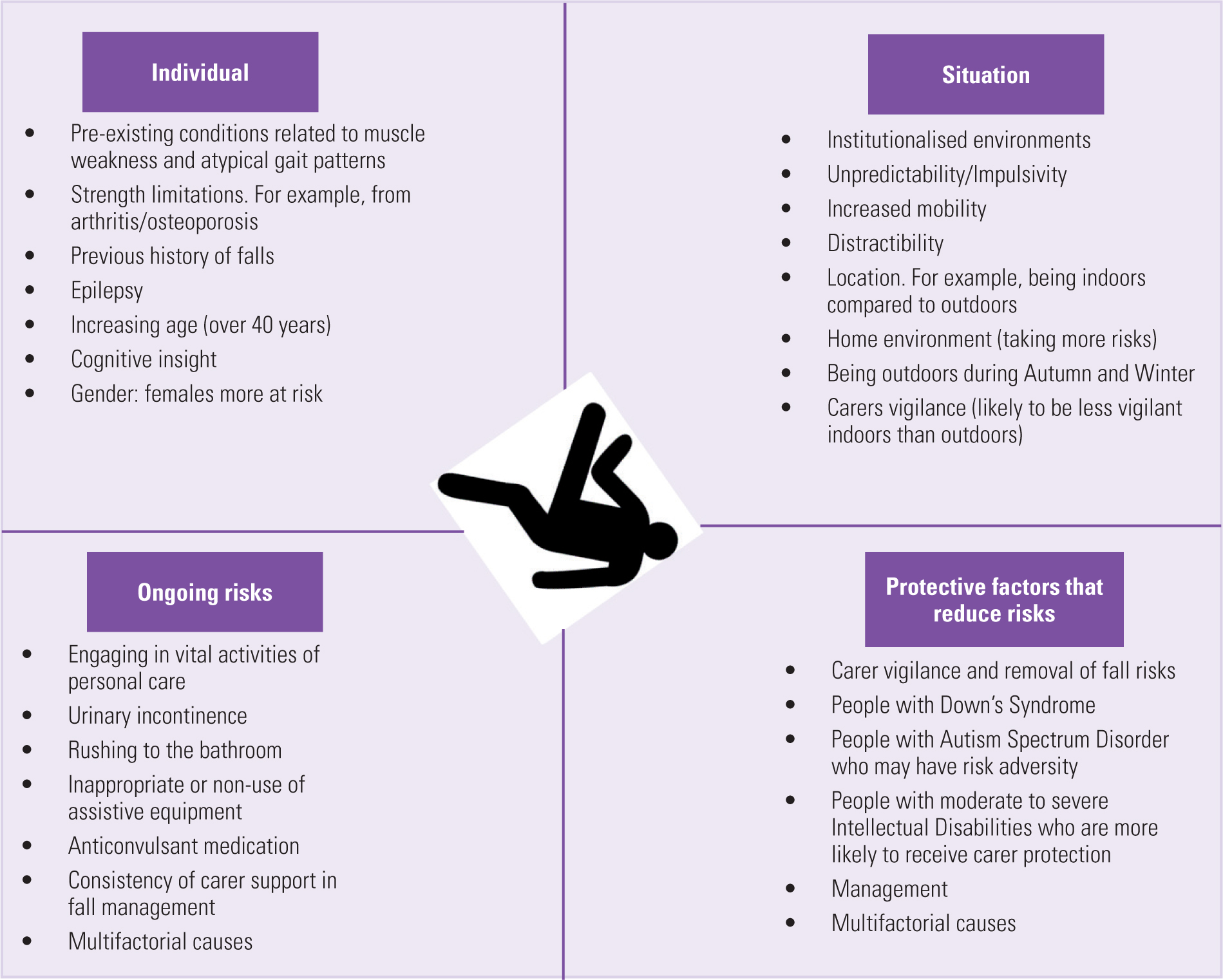The Dementia Fall Risk Statements
The Dementia Fall Risk Statements
Blog Article
Not known Details About Dementia Fall Risk
Table of ContentsDementia Fall Risk - TruthsFacts About Dementia Fall Risk UncoveredSome Known Incorrect Statements About Dementia Fall Risk The Dementia Fall Risk PDFsIndicators on Dementia Fall Risk You Should Know
Based on indicators and symptoms, such as evidence of head injury or a new focal neurologic deficit, computed tomography or MRI of the brain may be indicated. An evaluation for sources of syncope must be performed just if there is solid uncertainty, as in the instance of recurrent, inexplicable drops
Medical care providers use a fall threat analysis to identify your risk aspects for dropping and make handy referrals. Some people try to decrease their fall danger by limiting their activity or making every effort to be more mindful. But these well-intentioned behaviors aren't sufficient. A fall threat assessment is necessary since knowing which variables boost your chances of falling helps you: Decrease your danger of dropping or injuring yourself.
All adults 65 years and older ought to have an initial fall risk screening. Have dropped in the previous year. Worry concerning dropping.
Dementia Fall Risk for Dummies

Discover this detailed nursing care plan and administration guide to efficiently prevent threat for drops amongst clients. Acquire necessary expertise regarding the nursing assessment, taking care of medical diagnosis, and objectives particularly tailored to people that go to danger for falls. A is specified as an event that leads to a person coming to relax inadvertently on the ground or flooring or various other lower level (THAT, 2021).
According to the Centers for Condition Control and Avoidance (CDC),, creating over 34,000 fatalities for that age group. Dropping is the second leading reason of fatality from unintended injuries internationally. Death from falls is a major and native problem among older individuals. It is estimated that loss death rates in the U.S

Each year, over 800,000 people are hospitalized because of falls. Nurses play a major duty in avoiding drops for their people through education, assessing loss danger, developing safer atmospheres, and supplying treatments in avoiding injuries from drops.
Patient will certainly show discerning avoidance steps. Client and caregivers will certainly carry out methods to enhance safety and protect against drops in the home. Autumns are due to several variables, and an all natural method to the individual and setting is vital. Intend an individual is considered at high risk for drops after click this site the screening.
The 9-Minute Rule for Dementia Fall Risk
A like this calls for using a validated tool that researchers have taken a look at to be valuable in calling the reasons of drops in a person. The level of loss threat can be determined using the assessment of intrinsic and extrinsic elements.
People are extra most likely to fall again if they have maintained one or even more drops in the past six months. The older populace is at raised danger of fall-related readmissions based on a research study identifying the factors anticipating of repeat drops connected outcomes (Prabhakaran et al., 2020).
Additionally, complication and damaged judgment enhance the patient's opportunity of dropping. The ability of individuals to secure themselves from falls is influenced by such aspects as age and advancement. Older individuals with weak muscular tissues are most likely to drop than those who keep muscle mass strength, flexibility, and endurance. These adjustments include reduced aesthetic function, damaged color understanding, change in facility of gravity, unsteady stride, decreased muscular tissue strength, lowered endurance, altered deepness perception, and postponed feedback and reaction times.
How Dementia Fall Risk can Save You Time, Stress, and Money.
Much less comparison sensitivity address was quite related to both boosted prices of drops and various other injuries, while decreased visual acuity was only associated with enhanced autumn price (Timber et al., 2011). Sensory assumption of ecological stimulations is paramount to safety. Vision and hearing problems limitation the individual's capacity to regard hazards in the surroundings.
Older grownups that have inadequate equilibrium or trouble walking are much more likely to drop. These issues might be connected with absence of exercise or a neurological reason, joint inflammation, or other medical conditions and therapies. An important risk aspect highlighted in a study is that adults with rheumatoid joint inflammation are at high threat of drops, including puffy and tender reduced extremity joints, fatigue, and use psychotropic medicines (Stanmore et al., 2013).
Report this page